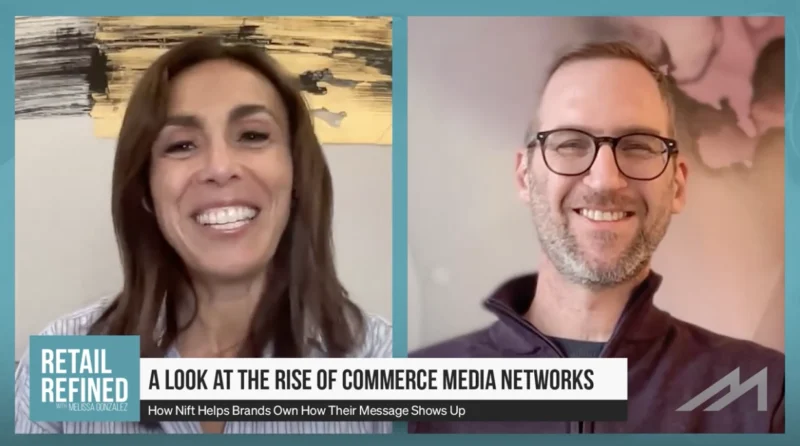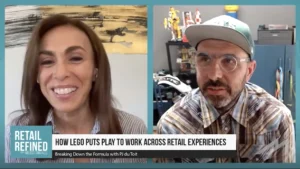UNIVERSITY OF CENTRAL FLORIDA PROFESSOR AXEL STOCK, PH.D. TALKS DATA AND MARKETING
Could data analysis replace intuition and creativity as the next best skill for tomorrow’s digital marketers? All signs are pointing in that direction, or at least towards a fusion of data and content. Especially within the Retail industry, with consumer trends flowing from in-store, in-app, or online, retailers have an abundance of data to make sense of and capitalize on, data that can influence powerful marketing strategies. Dr. Axel Stock, Associate Professor of Marketing at the University of Central Florida, joins us on this episode of our Digital Marketing Professor Series, to add his decades of experience to the conversation.
Dr. Stock has found that, as company structures evolve, so do their marketing strategies. Information is more available to everybody on the commercial level; the entry-point for understanding the statistical growth and trends of your company. Data and analysis are becoming a prerequisite for marketing students looking to enter a changing landscape, who now take courses on programming language. The consumer is evolving too; they’re more savvy and aware of the best deals, and are looking for marketing that is less distracting and disruptive, according to Stock. All in all, traditional marketing is seeing a statistical and content-focused swing.
“Decisions at the higher levels of the organization will be driven more by scientists, increasingly,” Dr. Stock said. “Currently in those more academic areas within organizations, where you would have positions that were traditionally marketing people, now you have physicists and engineers because they have more background in programming. Since these large sets of data need a particular skill first to collect them and analyze them, the traditional marketing graduate would not be able to do that.”
HIGHLIGHTS FROM THE EPISODE
Shelby Skrhak: So within the retail space, like I said, you know, there is so much data that’s available. Has it been that this data analysis has largely been left to the data scientists and are you seeing that there’s a case for all marketing students to really dive into and understand the sheer computation of data?
Dr. Axel Stock: I think if you look at the growth in job availabilities, then the field that you mentioned, data science and data analysis, there’s basically a lot growth. So that’s an opportunity for students but not all the students may be a good fit for that area. I mean, we continue to exist creative jobs that’s in marketing and sales jobs as well. We are just at the very operational level. You can also pursue a highly successful career. I just would think that at the manager level, more understanding of how to manage and analyze data that become more and more important.
SS: Well, yeah. You said something interesting that of the marketing students coming in there is still a good number of creative positions and creative people that are pursuing marketing. But with the increase of data available and then now the more conclusions that can be drawn from that, do you see that shifting? Do you see a larger wave of mathematicians and scientists coming into marketing versus the creatives and the ones that maybe 20 years ago would have made decisions based on intuition and now they’re using a whole other process for making marketing decisions?
DAS: Yeah. I think there are decisions that the higher level of the organization will be driven more by, you know, scientists increasingly. So you mentioned something very interesting that is basically currently in those more academic areas within we call the organizations actually, you know, you would have in positions that perhaps traditionally would be marketing people, now you have basically processes, you have engineers, you know, because they have basically more background in programming. And so since these large sets of data need the particular skill to first collect them and to analyze them, the traditional marketing graduate would not be able to do that.
SS: So you’ve been there at University of Central Florida for a number of years. I think I read 15 years that you’ve been there and since then, you’ve done some extensive research especially I read within game theory and applying that to marketing strategy. For somebody that doesn’t really understand game theory and how that actually applies to marketing, will you explain kind of that in plain language for us?
DAS: Yeah. Basically I look at how companies interact with each other at a very general level. And in that context, I’m basically studying the particular types of marketing decisions that folks could take. So if you think of a game, in a game you have players and players can take actions and these actions affect the other player and that is basically where I see that there’s a similarity as to business interactions.
So in business, the players are companies and consumers, and the consumers can take actions and the companies can take actions. They can change prices, they can launch advertising. And the consumers, they make decisions, they decide to which provider to buy from, and whether they submit a review on a website or whether they register on a website to be able to make a purchase. So they also take actions.
In game theory, basically, we look at consumers making… look at finding an equilibrium where all these participants make decisions that are best for themselves given that they understand that others are also making the same type of decisions, decisions that are best for themselves and then we can basically derive optimal marketing strategies, what is the optimal pricing strategy, optimal advertising strategy but always in a very, let’s say, constraints.
I’m basically talking about research methodology. We use mathematics to understand what is up to your choice in a particular situation. So let’s just consider one specific example that suppose two car manufacturers, basically they want to market a new car, an SUV, and the consumers don’t know about this car. So these two car manufacturers they compete with each other. The two basic decisions they have to make are setting a price for this car and also to make a decision about advertising intensity, how many consumers should actually be exposed to the advertisement because advertisement is expensive. It might not be the best choice to educate all the consumers.
Now consumers for example nowadays they would have a choice to view the ad or they can maybe zip through the ad using a DVR. So now if you are interested in learning what is the effect of increases in DVR penetration on the advertiser’s pricing strategies, advertising strategies and optimal profits, we would basically maximize the profits given the reactions of the consumers who do what’s best for themselves. And then we look at that outcome and we see through an exercise how were that profit and advertising choice and pricing choice change as the percentage of DVR owners increase in the market. That would be basically one study that I did in the past.
SS: When we talk about omnichannel, we’re talking about that, I guess, that narrowing gap between brick and mortar retail and e-commerce or online retail that those two seem to be blending. Will you share some insight on just how this is getting closer together and how those previously unique experiences have melted into one omnichannel experience?
DAS: Yeah. That’s a very good question. So let’s just take an example of a case that I’ve taught about JCPenney, this one retailer that uses an omnichannel strategy. So they have an app, they have a website, and they have stores, and you know they compete with competitors within their department store category, for example Kohls, and they also compete with Amazon. Amazon would be the pure online player. Because of its size, Amazon has a stronger power in general to provide lower prices. But you know, how can JCPenney now use omnichannel strategy to get a competitive advantage versus Amazon?
For example, they can provide something that’s called order online and pick up in store. So Amazon, you know, although they have optimized delivery times may, in some cases, not be able to provide the item that you want the closest that you need for a particular event to go to in quick enough of a time. But if JCPenney has that suit available to you, close to your location, it’s in the store, you could order it online, order it from the convenience of your home, not having to spend time to go there and to shop but then you can pick it up maybe on the same day and have it ready when you need it.
One of the strengths of JCPenney and some other omnichannel players is that they have a very wide network of stores which basically allows them to compete with this strategy order online and pick up in store for many customers. And what we also notice is that once a customer comes in the store to pick up this item they selected, oftentimes they in fact pick up additional accessories for that suit, maybe a tie, maybe a shirt, and with these items JCPenney can make additional margins. That’s why it’s a smart strategy.
In our podcast graphic, “Fairwinds Alumni Center at UCF” by Kelly Daacon is licensed under CC BY 2.0
For the latest news, videos, and podcasts in the Retail Industry, be sure to subscribe to our industry publication.
Follow us on social media for the latest updates in B2B!
Twitter – @RetailMKSL
Facebook – facebook.com/marketscale
LinkedIn – linkedin.com/company/marketscale









